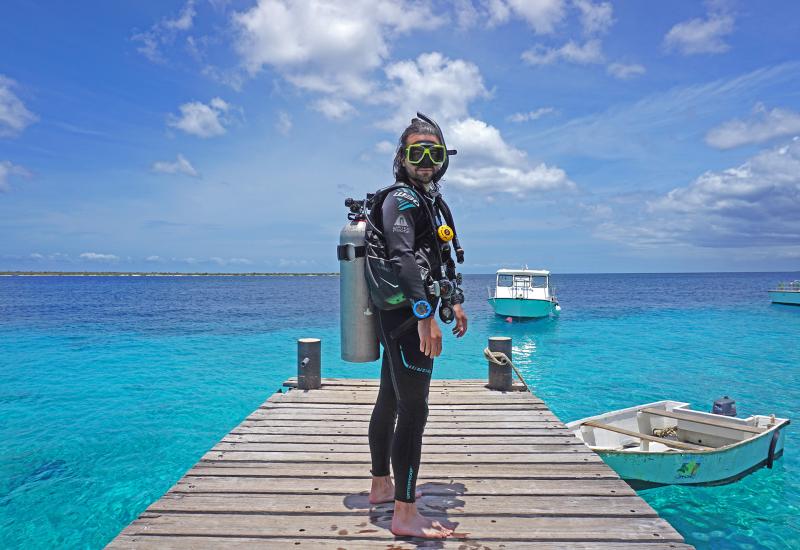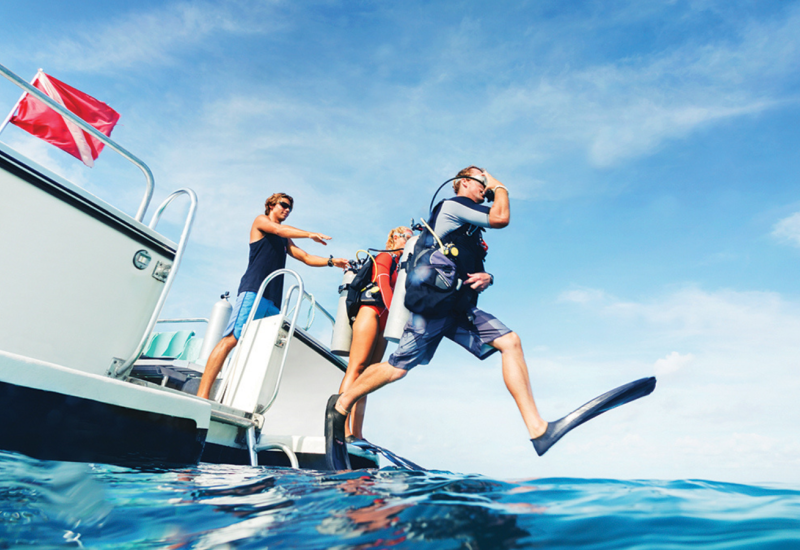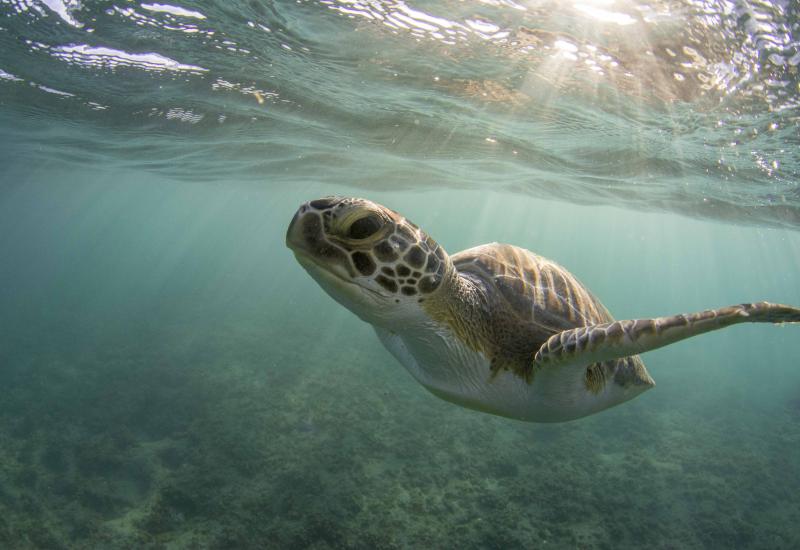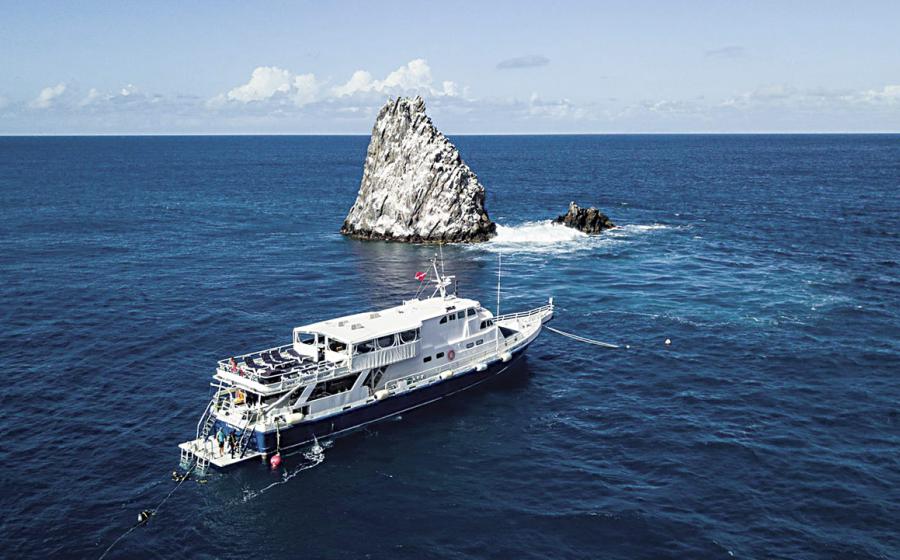How to Equalize Ear Pressure When Scuba Diving
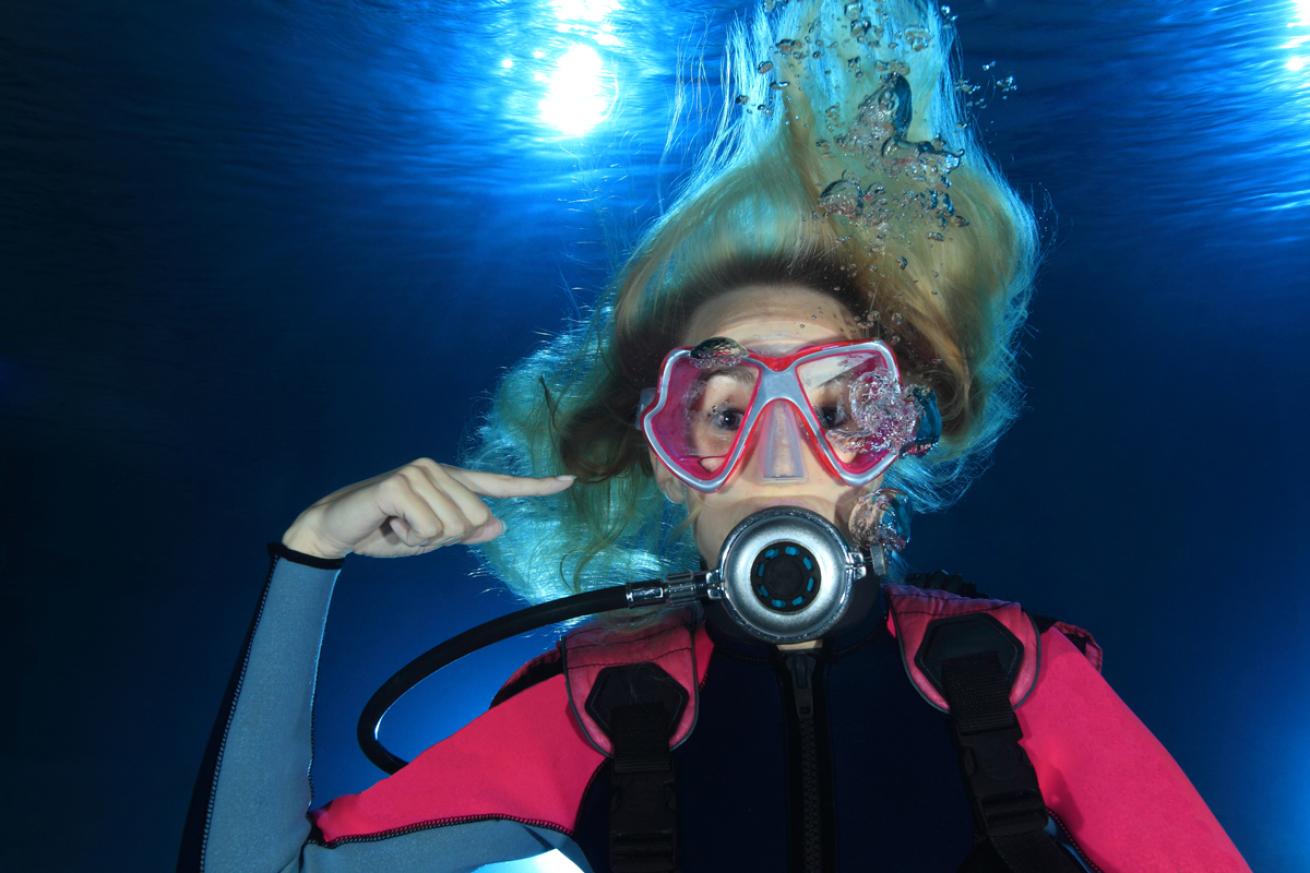
Shutterstock.com/aquapixMany divers experience issues while trying to clear their ears. Tips below for relieving ear pressure problems on a dive.
How to Equalize Ear Pressure when Scuba Diving
Let's review some basic dive physiology. Your middle ears are air spaces, sealed by the eardrum but connected to the outside by the eustachian tubes, which run to the back of your throat. As you descend, water pressure bends the eardrum inward as the air in the middle ear compresses. To restore volume lost to pressure, you send air into the middle ear via the eustachian tubes, equalizing or "popping" your ears. Failing to do this causes ears to hurt when diving, and potentially damages the delicate mechanisms of the ear. But you knew this already.
The key to safe equalizing is to get air to flow from the throat to the ears through the opening of the normally closed eustachian tubes. Most divers are taught to equalize by pinching their nose and blowing gently. This gentle pressure opens the eustachian tube and flows air gently to the middle ear.
You can blow by exhaling (called the Valsalva Maneuver) or by using your throat muscles (called the Frenzel Maneuver), the latter of which is preferred because it's gentler and you control it more easily. You may do it already – at the surface, exhale fully as much as you can, squeezing out as much as you can, then pinch your nose and gently pop your ears. Since you can't exhale anymore if you're equalizing using your throat, not exhalation. Many divers can also equalize by swallowing, wiggling or stretching their jaws (not easy with a regulator though) or a combination of these. You can also swallow while pinching your nose.
Tips for Equalizing Ear Pressure
Whether you need help “clearing” or “popping” your ears, the best ways to equalize ear pressure when diving involves a few simple steps
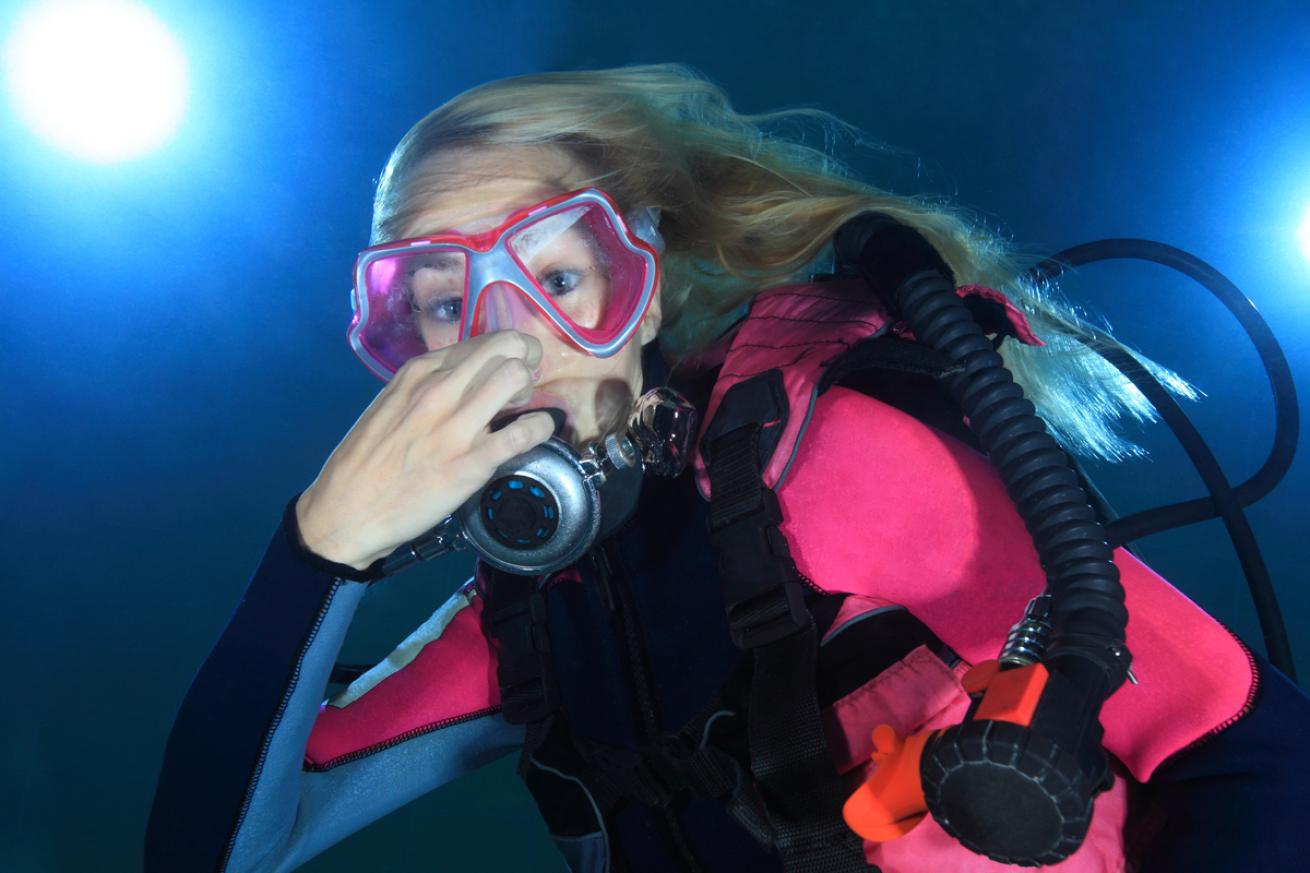
Shutterstock.com/aquapixThe Valsalva Maneuver and Frenzel Maneuver are two popular techniques used to relieve ear pressure on dives.
Listen for the "Pop"
Before you even board the boat, make sure that when you swallow, stretch your jaw or gently pinch and blow you hear/feel the "pop" in both ears. This tells you both eustachian tubes are opening.
Start Early
Several hours before the dive, begin gently equalizing your ears every few minutes. Chewing gum seems to help some people because it makes you swallow often.
Descend Head Higher Than Feet
Studies have shown that equalization can require more force when you're in feet up than in a position than feet down position, but this is not an issue for many divers.
Tilt Your Head Up a Bit
Extending your neck tends to open your eustachian tubes, but this isn't recommended for freedivers, BTW, because it may contribute to blackout.
Use a Descent Line
Following an anchor or mooring line can help you control your descent rate, which helps if your ears equalize slowly. A line also helps you stop your descent quickly if they're not equalizing.
Stay Ahead
Equalize early and often, keeping up with the pressure as you descend. Don't wait until you feel significant pressure, discomfort or any pain. Equalize as you feel slight pressure differences.
Stop if it Hurts
If you're equalizing properly and often enough, you should not feel pain, period. Delaying equalization can block your eustachian tubes because the pressure differential. Ascend a few feet and try equalizing again.
If You Can't Equalize your Ears, End the Dive
Continuing to descend with unequalized ears is painful and will lead to middle ear squeeze (blood and fluid forced into the middle ear) and/or ear drum rupture. Never continue descending with unequalized ears, and be sure to signal your buddy (or instructor if you're taking a class). The only way another diver can know you can't equalize is if you tell them.
Avoid Things that Produce Mucus
A common cause of equalization problems is congestion, so avoid things that cause mucus. Some foods, including milk, can increase your mucus production. Both tobacco smoke and alcohol irritate your mucus membranes, (not to mention all the many other reasons to avoid tobacco smoke, and to never dive under the influence of alcohol). A bit of water in your mask can make you a bit snotty, so keeping it dry may help..


